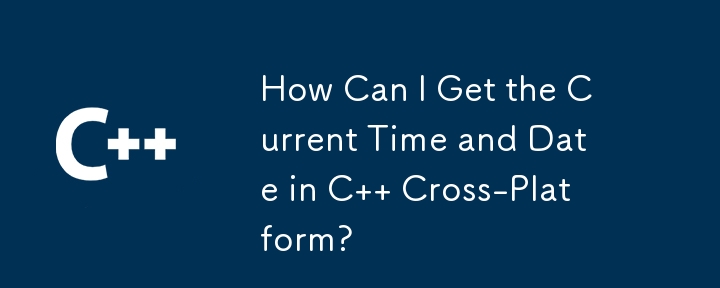

Getting Current Time and Date in C Cross-Platform
The C standard library now provides a convenient and portable way to retrieve the current time and date through the std::chrono::system_clock class. Introduced in C 11, this class offers a system-independent interface for accessing high-resolution timing information.
Syntax:
auto now = std::chrono::system_clock::now();
The now() function returns a time_point object representing the current moment in time. Time points can be manipulated and compared to calculate elapsed time or retrieve specific date and time components.
Example:
#include <iostream>
#include <chrono>
int main() {
auto now = std::chrono::system_clock::now();
std::chrono::duration<double> elapsed_seconds = now - std::chrono::system_clock::now();
std::cout << "Current time: " << std::ctime(&now) << std::endl;
std::cout << "Elapsed seconds: " << elapsed_seconds.count() << std::endl;
}This example prints output similar to:
Current time: Mon Oct 2 00:59:08 2017 Elapsed seconds: 0.000372
Additionally, std::chrono provides utility functions to extract specific date and time components, such as:
By combining std::chrono with C standard library functions, you have a comprehensive cross-platform solution for handling date and time operations in your C applications.
The above is the detailed content of How Can I Get the Current Time and Date in C Cross-Platform?. For more information, please follow other related articles on the PHP Chinese website!
 Compare the similarities and differences between two columns of data in excel
Compare the similarities and differences between two columns of data in excel
 Win10 My Computer Icon Retrieval Tutorial
Win10 My Computer Icon Retrieval Tutorial
 sort sorting function usage
sort sorting function usage
 How to install printer driver in linux
How to install printer driver in linux
 How to unlock android permission restrictions
How to unlock android permission restrictions
 excel duplicate item filter color
excel duplicate item filter color
 what is optimization
what is optimization
 How to repair sql database
How to repair sql database
 How to use append in python
How to use append in python




